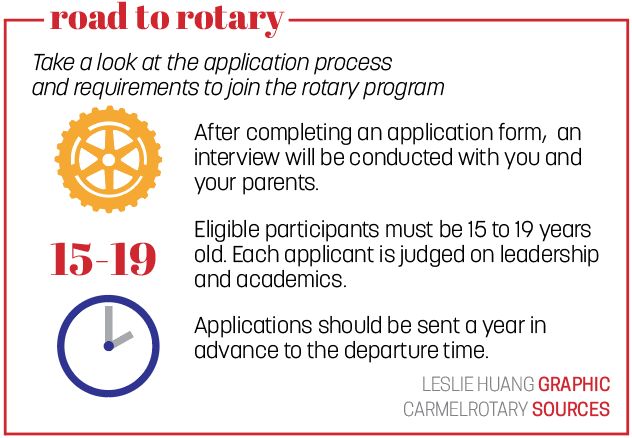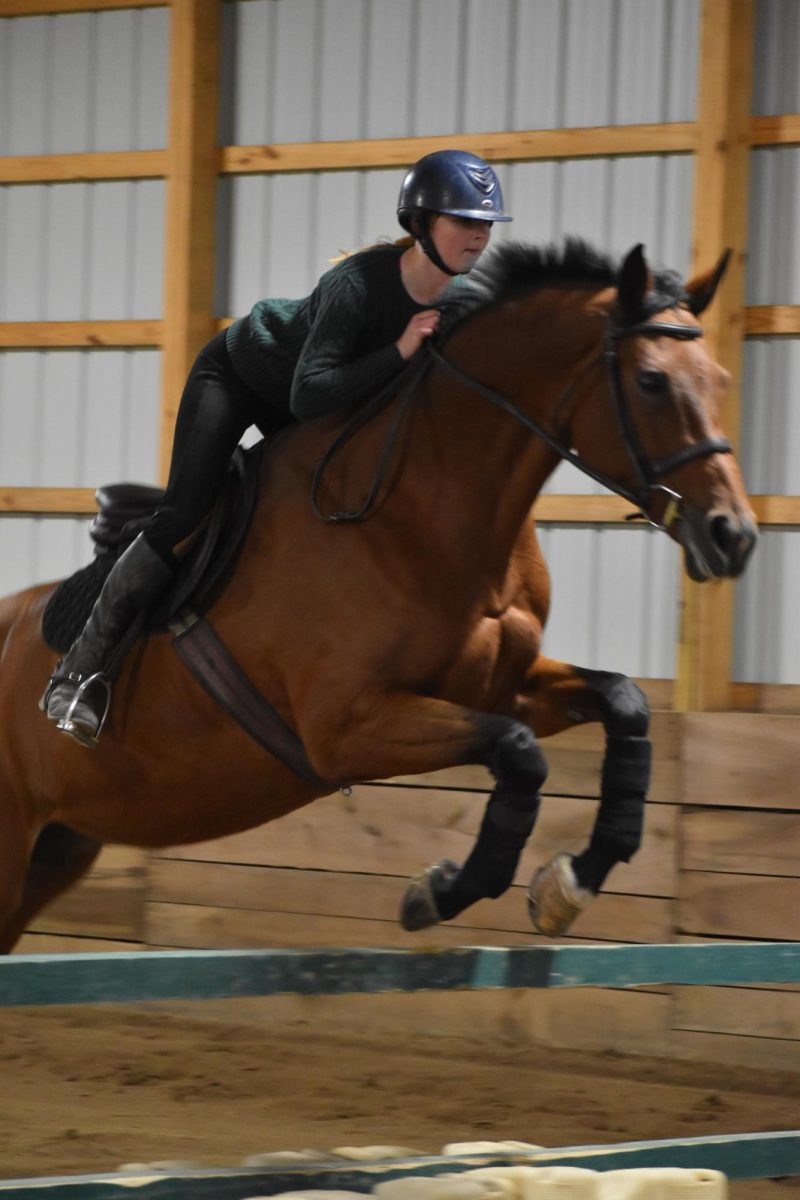According to the latest results of a rigorous international exam from the Pew Research Center, U.S. students continue to fall behind other countries in standardized testing, despite a nationwide effort to improve education. The results revealed that nearly two-thirds of American children were not proficient in reading and placed the United States an “unimpressive” 38th out of 71 countries in math. Tomorrow marks the second annual recognition of the International Day of Education passed by the U.N. General Assembly in December 2018. The day is geared to celebrate the role of education for peace and development around the world. But it also brings to light disparities in international education, like the ones the Pew Research Center revealed, between the United States and other schools worldwide.
Freshman Edward Efuntoye said the American education system might fall behind in standardized testing because it focuses more on extracurriculars and originality rather than exam scores. Efuntoye attended school in Nigeria for most of his primary education before moving to the United States last year.
“The school in Nigeria is tougher in my opinion because students start with learning more in-depth areas like chemistry, physics and biology in middle school,” he said. “In Nigeria, there were no extracurriculars after school. Here, there are more clubs and opportunities to explore what you really like and meet new people.”
Efuntoye’s observations have some merit. According to the U.S. Census Bureau, 57% of U.S. students participate in some sort of extracurricular activity—one of the highest percentages in the world. Students are more inclined to pursue an activity they enjoy over sticking to academics in school.
“In Nigeria, things are a lot more strict,” Efuntoye said. “For example, we didn’t have a block schedule. We had classes like English and math 10 to 12 times a week. And the use of materials like sticks and wires to beat a child if they are misbehaving are still legal, which is a common example of child abuse. Part of this could be because a lot of Nigerian schools are still very underdeveloped, but another reason is that they enforce rules a lot harder.
“One really big difference is that here colleges look into extracurricular activities and other factors,” he added. “In Nigeria, they mostly only look at exam scores and assessments, which consumes most students.”
Chase Tiffany, an associate instructor of French at IU, said his overall impression of international students is they tend to walk away from their education with better capacities to apply the skills they learn in school. He has visited several education programs in France, Spain and Canada and often works with international students and professors from other countries.
Tiffany said via email, “(International) schooling asks students to critically think and create well-structured arguments over just understanding the theories that apply to the field of study. I think that they often walk away more able to create logical arguments and they seem less afraid of things they don’t fully understand just yet.”
Similar to Efuntoye, Tiffany said the American education system prioritizes meeting new people and becoming a part of a community, skills which also benefit students in the long run.
“I find that many (international students) lack some of the social bonds that come alongside school organizations and events that we get to experience here in the U.S. I don’t find that any system is ‘better’ than the other, but I find that the students [from the United States] often times walk away with higher abilities in one area of their life when compared to the same type of student in the other country,” he said.
Tiffany said he believes American education culture doesn’t do enough to encourage students to perform well on standardized tests and ends up putting unnecessary stress on students.
“I think a focus on creating an argument and attempting to explore a larger picture of a smaller amount of problems can be more representative of a student’s true skill. The French Baccalaure [a qualification exam] attempts to do this by focusing in on longer, essay-style questions that leave room open to explain the train of thought,” Tiffany said.

He said such tests often fail to represent a student’s true skill—a common stance in the debate over standardized tests.
Additionally, sophomore Remi Shirayanagi, a CHS student who is currently enrolled in a foreign exchange program at the Chi-Ying Senior High School in Taiwan, said there is a lot more pressure to perform well on tests in Taiwan when compared to extracurriculars.
“In Taiwan, the test-taking process is very rigorous,” she said. “Students here [in Taiwan] have a ‘finals week’ for every quarter, and they take about three days of the whole week testing. Most students will stay up really late studying because these tests and final exams can determine if they pass or fail.”
Similar to the Nigerian education system, Shirayanagi said Taiwan’s universities rarely look into extracurriculars and base admissions off of standardized test scores.
“A lot of people don’t participate in extracurriculars because there isn’t much time for them when you’re so busy with studying. If you’re interested in music, for example, you can major in music, but not necessarily keep it as just a hobby,” she said.
Ultimately, both Efuntoye and Shirayanagi said they prefer the American education system over schooling in Nigeria and Taiwan. However, they both said that they were glad to have the opportunity to experience different schooling in another country.
Shirayanagi said, “Personally, I think that the American system might fit me better. I think there’s more freedom to pursue your interests with leisure without the pressure of having to take it seriously as a career or something. That being said, I’m really grateful that I get to be in Taiwan because it’s a great opportunity where I can experience a different part of the world.”
Tiffany said the benefits from pursuing an international education are endless.
He said, “First and foremost, students who pursue an international education get to put themselves in multiple educational environments during their educational years, which means a wider range of experiences. It’s great because they learn to think in new ways and learn to question what they’re learning due to different ways of approaching the same topics.”

































![British royalty are American celebrities [opinion]](https://hilite.org/wp-content/uploads/2024/03/Screenshot-2024-03-24-1.44.57-PM.png)



















![Chelsea Meng on her instagram-run bracelet shop [Biz Buzz]](https://hilite.org/wp-content/uploads/2024/04/IMG_2446-1200x838.jpg)
![Review: Quiet on Set: The Dark Side of Kids TV is the long awaited exposé of pedophilia within the children’s entertainment industry [MUSE]](https://hilite.org/wp-content/uploads/2024/04/unnamed.jpg)
![Review: “The Iron Claw” cannot get enough praise [MUSE]](https://hilite.org/wp-content/uploads/2024/04/unnamed.png)
![Review: “The Bear” sets an unbelievably high bar for future comedy shows [MUSE]](https://hilite.org/wp-content/uploads/2024/03/unnamed.png)
![Review: “Mysterious Lotus Casebook” is an amazing historical Chinese drama [MUSE]](https://hilite.org/wp-content/uploads/2024/03/0.webp)
![Review in Print: Maripaz Villar brings a delightfully unique style to the world of WEBTOON [MUSE]](https://hilite.org/wp-content/uploads/2023/12/maripazcover-1200x960.jpg)
![Review: “The Sword of Kaigen” is a masterpiece [MUSE]](https://hilite.org/wp-content/uploads/2023/11/Screenshot-2023-11-26-201051.png)
![Review: Gateron Oil Kings, great linear switches, okay price [MUSE]](https://hilite.org/wp-content/uploads/2023/11/Screenshot-2023-11-26-200553.png)
![Review: “A Haunting in Venice” is a significant improvement from other Agatha Christie adaptations [MUSE]](https://hilite.org/wp-content/uploads/2023/11/e7ee2938a6d422669771bce6d8088521.jpg)
![Review: A Thanksgiving story from elementary school, still just as interesting [MUSE]](https://hilite.org/wp-content/uploads/2023/11/Screenshot-2023-11-26-195514-987x1200.png)
![Review: When I Fly Towards You, cute, uplifting youth drama [MUSE]](https://hilite.org/wp-content/uploads/2023/09/When-I-Fly-Towards-You-Chinese-drama.png)
![Postcards from Muse: Hawaii Travel Diary [MUSE]](https://hilite.org/wp-content/uploads/2023/09/My-project-1-1200x1200.jpg)
![Review: Ladybug & Cat Noir: The Movie, departure from original show [MUSE]](https://hilite.org/wp-content/uploads/2023/09/Ladybug__Cat_Noir_-_The_Movie_poster.jpg)
![Review in Print: Hidden Love is the cute, uplifting drama everyone needs [MUSE]](https://hilite.org/wp-content/uploads/2023/09/hiddenlovecover-e1693597208225-1030x1200.png)
![Review in Print: Heartstopper is the heartwarming queer romance we all need [MUSE]](https://hilite.org/wp-content/uploads/2023/08/museheartstoppercover-1200x654.png)






















![Review: Ladybug & Cat Noir: The Movie, departure from original show [MUSE]](https://hilite.org/wp-content/uploads/2023/09/Ladybug__Cat_Noir_-_The_Movie_poster-221x300.jpg)

![Review: Next in Fashion season two survives changes, becomes a valuable pop culture artifact [MUSE]](https://hilite.org/wp-content/uploads/2023/03/Screen-Shot-2023-03-09-at-11.05.05-AM-300x214.png)
![Review: Is The Stormlight Archive worth it? [MUSE]](https://hilite.org/wp-content/uploads/2023/10/unnamed-1-184x300.png)


![Seniors Jillian Rang and Athul Ramkumar practice their presentation at the DECA state competition on March 5, 2024. Arya Patel, DECA paper head and junior, said, As they [students] begin to make their final preparations, its important to remember that making it to this point is an incredible achievement.](https://hilite.org/wp-content/uploads/2024/04/IMG_8285-1200x800.jpg)